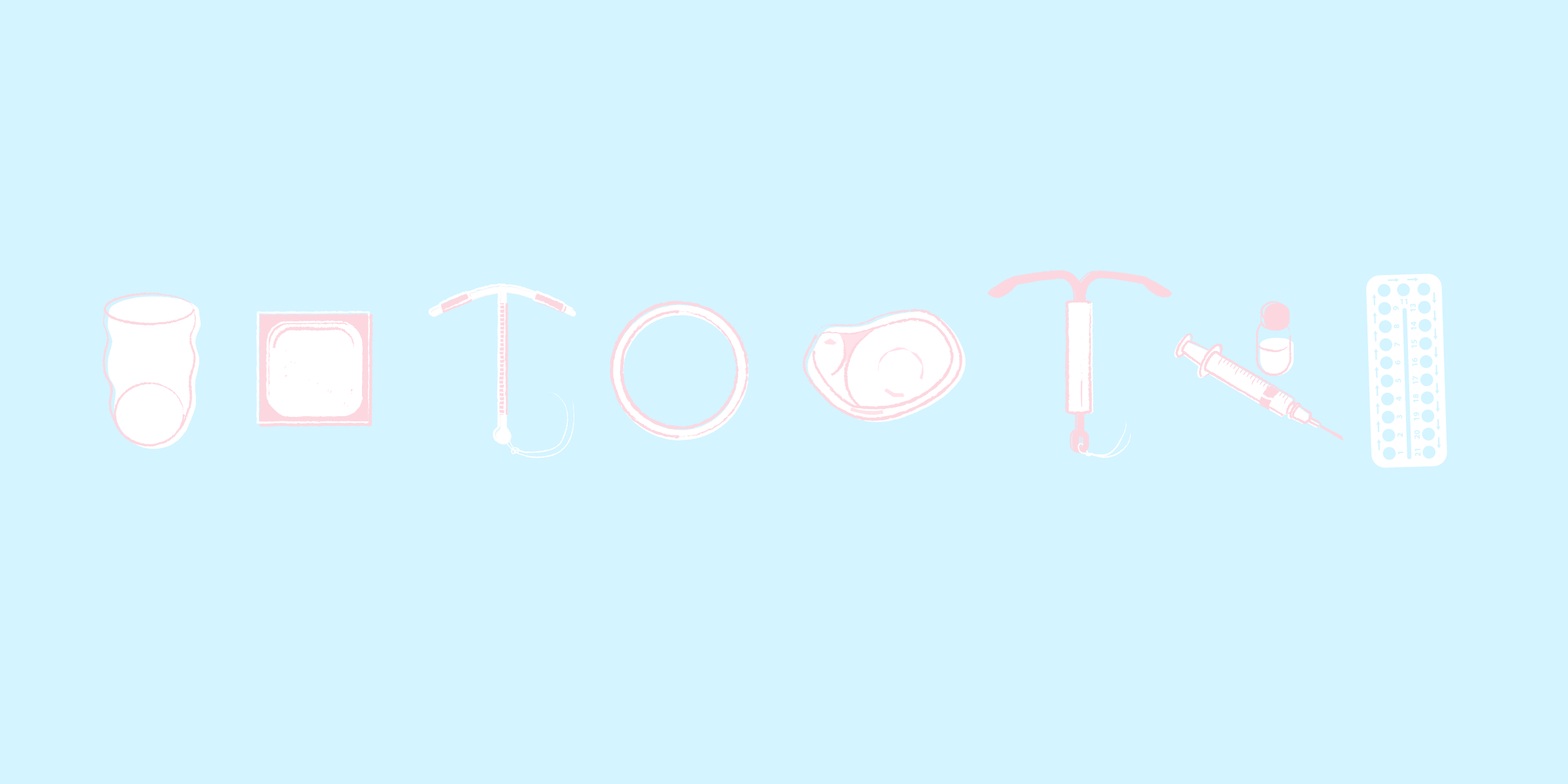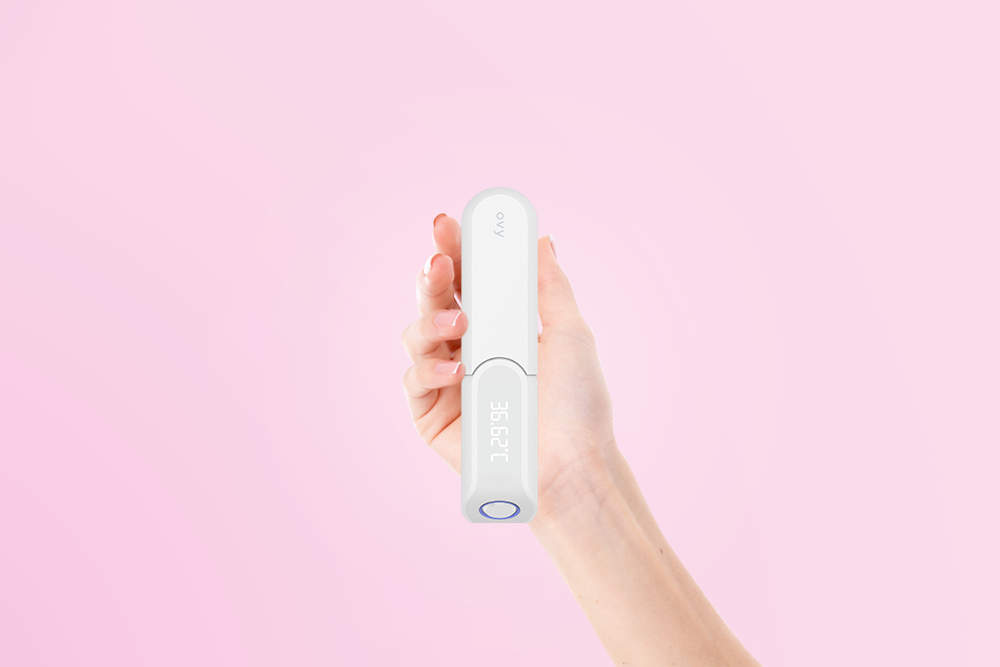Key Takeaways
- A healthy thyroid is essential for a happy and complication-free pregnancy - find out why and how to keep your levels under control.
- Did you know that your iodine and hormone requirements increase significantly during pregnancy?
- This article shows you how to optimally control your thyroid levels, what risks there are and how you can support your baby in the best possible way with targeted measures.
Are you planning a pregnancy or already expecting? If so, your thyroid levels play a critical role in your health and the health of your baby. Thyroid levels during pregnancy must be carefully monitored, as they directly impact the development of the unborn child. A well-functioning thyroid is especially important for a smooth pregnancy.
In this article, you’ll learn everything you need to know about optimal TSH levels during pregnancy and how thyroid conditions such as Hashimoto's thyroiditis, hyperthyroidism, or hypothyroidism can affect your pregnancy. You’ll get an overview of recommended check-ups, necessary treatments, and essential tips for a healthy pregnancy.
The Importance of the Thyroid in Pregnancy
The thyroid is central to your health and that of your unborn child. As an important hormone gland, it influences nearly all physical, mental, and emotional functions.
Thyroid Function
Your thyroid acts as an energy supplier for many tissues in the body. During pregnancy, you and your baby need extra energy, which increases the demand for thyroid hormones by up to 50%. Thyroid hormones are closely linked to sex hormones such as estrogen, and they mutually influence each other.
Changes in Thyroid Levels During Pregnancy
In the first weeks of pregnancy, your baby is entirely reliant on your thyroid hormones. Only from the 18th to 20th week of pregnancy can your child start producing hormones independently. To ensure this increased hormone production, your daily iodine requirement rises to 230 micrograms.
Important Changes During Pregnancy:
- Your thyroid enlarges by up to 40%
- Hormone metabolism increases by about 50%
- The pregnancy hormone hCG further stimulates hormone production
Impact on Mother and Child
A properly functioning thyroid is crucial for the normal physical and mental development of your baby. Around one-third of the German population has detectable thyroid abnormalities. Untreated thyroid diseases increase the risk of miscarriage and premature birth.
Thyroid autoantibodies can be detected in up to ten percent of pregnant women, and one to two percent have hypothyroidism. This may sometimes be so mild that you don’t notice symptoms, but the thyroid can become overwhelmed during pregnancy.
Optimal TSH Levels for Pregnant Women
For a healthy pregnancy, it's important that your TSH levels are within the optimal range. Let’s take a closer look at the relevant levels for you.
Recommended TSH Reference Ranges
TSH reference levels vary depending on the trimester. The recommended ranges are:
| Trimester | TSH Reference Range |
|---|---|
| 1st Trimester | 0.1 - 2.5 mU/l |
| 2nd Trimester | 0.2 - 3.0 mU/l |
| 3rd Trimester | 0.3 - 3.0 mU/l |
If you’re planning in vitro fertilization or have positive TPO antibodies, a TSH level over 2.5 mU/l is already considered elevated. The optimal TSH value is ideally around 1.0 mU/l.
Risks of Deviating Values
Untreated hypothyroidism can bring the following risks:
- Doubled risk of miscarriage
- Increased premature birth rate
- Premature detachment of the placenta
- Development of high blood pressure during pregnancy
About 5% of all pregnant women have latent or overt hypothyroidism. However, for pregnant women without detectable TPO antibodies and a TSH level below 10 mU/l, there is no increased risk of complications for the child.
Frequency of TSH Monitoring
Your thyroid levels should be checked regularly:
- Every 4-8 weeks during pregnancy
- 4 weeks after each dose adjustment
- 4-6 weeks after delivery
For existing thyroid disease, medication doses usually need to be adjusted. In the first trimester, the need increases by about 30%, and in the second trimester by 40-50% compared to the dose before pregnancy.
Thyroid Diseases in Pregnancy
During pregnancy, various thyroid disorders can occur, or existing conditions may change. Let’s take a closer look at the most common disorders and their effects.
Hypothyroidism (Underactive Thyroid)
Hypothyroidism affects about 0.4% of all pregnant women. Without treatment, it can lead to serious complications. The most common consequences include:
- Increased risk of miscarriage
- Impaired mental development of the child
- Premature birth
- Lower birth weight
The good news: With a well-managed thyroid function, no negative effects on your unborn child have been observed.
Hyperthyroidism (Overactive Thyroid)
Hyperthyroidism during pregnancy can have various causes, with the most common being Graves’ disease. Untreated hyperthyroidism poses the following risks:
- Slowed growth of your baby
- Development of preeclampsia
- Increased risk of premature birth and miscarriage
A mild pregnancy-induced hyperthyroidism usually normalizes on its own during pregnancy.
Hashimoto's Thyroiditis
Hashimoto’s thyroiditis is the most common cause of hypothyroidism during pregnancy. Interestingly, symptoms often improve during pregnancy due to the dampening effect of pregnancy hormones on the immune system.
Important points for you:
- Your need for thyroid hormones increases during pregnancy
- Regular check-ups every four weeks are recommended
- After childbirth, Hashimoto flare-ups may occur
Around 4-7% of women develop postpartum thyroiditis within the first six months after giving birth. This condition is usually temporary but may require treatment.
Treatment Options and Recommendations
The proper treatment of your thyroid during pregnancy is crucial for your health and your baby’s. Here’s an overview of the available therapies and important points to consider.
Medication Therapy
For hypothyroidism, you’ll receive L-thyroxine as a treatment. Your dosage will be adjusted regularly during pregnancy, as the need increases by 20-50%. Important to know: These medications are safe for your baby.
For hyperthyroidism, certain thyroid blockers like thiamazole or carbimazole may be used. The dosage is kept as low as possible.
Iodine and Selenium Supplementation
Your daily iodine requirement during pregnancy is 230 micrograms. Here are the most important recommendations for you:
- Use iodized table salt in cooking
- Eat seafood twice a week (especially iodine-rich: pollock, cod, plaice)
- Consume dairy products regularly
Selenium is also important for your thyroid function. The recommended daily intake is 60-70 micrograms. With a balanced diet, selenium deficiency is relatively rare in Germany.
Lifestyle Adjustments
A healthy and balanced diet is essential for optimal thyroid levels. Here are some key nutrients:
| Nutrient | Important Sources |
|---|---|
| Iodine | Seafood, dairy products |
| Selenium | Animal products |
Talk to your doctor about additional supplements, especially if you follow a vegan diet.
Aftercare After Birth
After giving birth, you should have your medication dose adjusted. The thyroid hormone dose will be reduced accordingly. Important follow-up appointments:
- 4-8 weeks after diagnosis
- If you experience symptoms of hyper- or hypothyroidism
- Regular check-ups in the first year after birth
About 4% of women develop postpartum thyroiditis after giving birth. This condition is usually temporary but should be monitored. If you experience symptoms like fatigue or mood swings, speak to your doctor, as about 15% of new mothers experience “baby blues.”
Conclusion
Your thyroid plays a central role in your pregnancy and the healthy development of your baby. Regular monitoring of your TSH levels and appropriate treatment of potential thyroid disorders can prevent complications. With proper medical care and a balanced diet, you can create the best conditions for a healthy pregnancy.
The good news: Thyroid disorders are very manageable today if detected early. Your doctor can support you with regular check-ups and a personalized treatment plan. Pay special attention to adequate iodine and selenium intake through your diet, and consult your medical team if you have any questions or symptoms. With this knowledge and the right care, you can look forward to your baby with peace of mind.
References & Literature
- Bundesverband Deutscher Internisten e. V. (BDI): Internisten im Netz: Schwanger mit Schilddrüsenunterfunktion, 18.08.2017. URL: https://www.internisten-im-netz.de/krankheiten/schilddruesenunterfunktion/schwanger-mit-schilddruesenunterfunktion.html
- Bundesinstitut für Risikobewertung (BfR): Jod, Folat/Folsäure und Schwangerschaft, 17.12.2021. URL: https://www.bfr.bund.de/cm/350/jod-folat-folsaeure-und-schwangerschaft.pdf
- Deutsche Gesellschaft für Endokrinologie (DGE): Schwangerschaft kann die Schilddrüse überfordern - Hormonexperten raten zum gezielten Funktionscheck, 09.03.2017. URL: https://www.endokrinologie.net/pressemitteilung/schwangerschaft-kann-die-schilddruese-ueberfordern.php
- Deutsche Medizinische Wochenschrift 2009; 134 (3): S. 83-86
- Gärtner, R.: Schilddrüsenerkrankungen in der Schwangerschaft.
- Kainer, F.; Nolden, A.: Das große Buch zur Schwangerschaft - Umfassender Rat für jede Woche, München, 06.08.2018.
- Schilddrüsenzentrum Köln: Schilddrüse und Schwangerschaft, o. D. URL: https://www.deutsches-schilddruesenzentrum.de/wissenswertes/schilddruese-und-schwangerschaft/
- Bundesinstitut für Risikobewertung: Jod, Folat/Folsäure und Schwangerschaft, 19.06.2014. URL: https://www.bfr.bund.de/cm/350/jod-folat-folsaeure-und-schwangerschaft.pdf
- Schilddrüsenzentrum Köln: Schilddrüse und Schwangerschaft. URL: https://www.schilddruesenzentrum-koeln.de/wissenswertes/weitere-themen/schilddruese-und-schwangerschaft
You might also be interested in these articles
Kinderwunsch
TSH levels and the desire to have children: the role of the thyroid gland in fertility11 Min. Lesezeit





